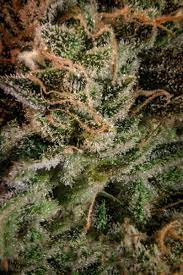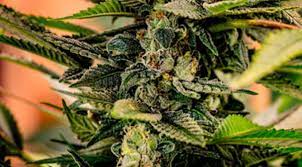Marijuana, also known as cannabis, has been a subject of much debate and discussion. One of the common questions that often arises is, "Is marijuana a stimulant?" In this article, we'll delve into this question and uncover the facts behind the buzz surrounding marijuana.

Table of Contents
| Sr# | Headings |
|---|---|
| 1. | What is Marijuana? |
| 2. | Understanding Stimulants |
| 3. | Effects of Marijuana |
| 4. | Interaction with the Brain |
| 5. | Chemical Composition |
| 6. | Misconceptions |
| 7. | Medical Uses |
| 8. | Risks and Side Effects |
| 9. | Legal Status |
| 10. | Conclusion |
| 11. | FAQs |
What is Marijuana?
Marijuana is a psychoactive drug derived from the Cannabis plant. It contains various compounds, notably THC (tetrahydrocannabinol) and CBD (cannabidiol), which interact with the body's endocannabinoid system.
Understanding Stimulants
Before we dive into whether marijuana is a stimulant, let's clarify what stimulants are. Stimulants are substances that increase activity in the brain and body, leading to heightened alertness, energy, and attention.
Effects of Marijuana
Contrary to popular belief, marijuana is not classified as a stimulant. Instead, it's categorized as a psychoactive depressant. This means that its primary effects tend to slow down brain activity and induce relaxation rather than stimulating it.

Interaction with the Brain
When marijuana is consumed, THC binds to cannabinoid receptors in the brain, altering neurotransmitter release. This interaction results in the characteristic effects associated with marijuana use, such as euphoria, altered perception of time, and increased appetite.
Chemical Composition
Marijuana contains a complex mixture of compounds, but THC is primarily responsible for its psychoactive effects. CBD, another compound found in marijuana, has different effects and may mitigate some of the psychoactive properties of THC.
Misconceptions
The misconception that marijuana is a stimulant may stem from the temporary increase in heart rate and feelings of euphoria that some users experience shortly after consumption. However, these effects are not indicative of stimulant activity.
Medical Uses
Despite its classification as a depressant, marijuana has various medical applications. It's commonly used to alleviate pain, reduce nausea and vomiting in chemotherapy patients, and stimulate appetite in individuals with eating disorders.

Risks and Side Effects
Like any drug, marijuana carries risks and potential side effects. These can include impaired cognitive function, respiratory issues from smoking, and dependence or addiction in some individuals, particularly with long-term or heavy use.
Legal Status
The legal status of marijuana varies greatly across different jurisdictions. While some countries have legalized it for medical and/or recreational use, others maintain strict prohibitions on its cultivation, sale, and possession.
Conclusion
In conclusion, marijuana is not a stimulant but rather a psychoactive depressant. Its effects on the body and mind are distinct from those of stimulant drugs. Understanding the true nature of marijuana is essential for making informed decisions about its use.
FAQs
Is marijuana addictive?
Yes, marijuana can be addictive for some individuals, particularly those who use it heavily or regularly over an extended period.
Can marijuana be used for medical purposes?
Yes, marijuana has various medical applications, including pain management, nausea relief, and appetite stimulation.
Does marijuana have any long-term effects on the brain?
Long-term marijuana use may have implications for cognitive function, particularly in adolescent users whose brains are still developing.
Can marijuana use lead to mental health issues?
While marijuana use alone may not directly cause mental health issues, it can exacerbate existing conditions or trigger latent psychological problems in susceptible individuals.
Is it legal to use marijuana recreationally?
The legality of recreational marijuana use varies by jurisdiction, with some regions permitting it while others maintain strict prohibitions.
